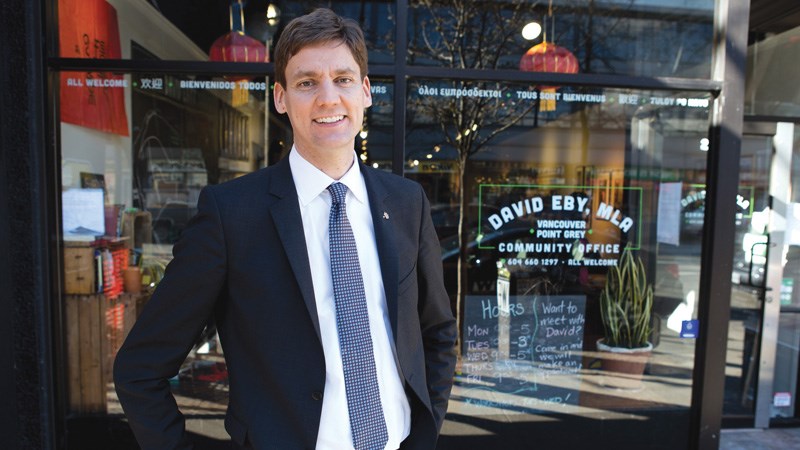If you think the BC Liberals got tough on foreign buyers last year, get ready for an even rougher ride for foreign nationals buying B.C. homes if the BC NDP win the May 9 provincial election.
The NDP, leading in the election polls as of press time, says it would add a new property tax and go after the sale of pre-sale contracts on new condominiums.
On August 2, the Liberals slapped a 15 per cent foreign-buyer tax on resale home purchases in Metro Vancouver, a move largely blamed for a subsequent collapse of detached-house sales, which immediately plunged as much as 70 per cent in higher-priced municipalities. Metro Vancouver detached sales remain 47 per cent below the pace of a year earlier.
The Canadian Real Estate Association now forecasts that B.C. housing sales will plunge 17.5 per cent in 2017, the worst year-over-year decline in Canada.
In March, the province moved to water down the foreign-buyer tax, lifting it on international citizens who hold a B.C. work permit and pay taxes in the province. Premier Christy Clark also suggested there may be compensation for such people who had paid the tax on a home purchase.
But the original tax was not broad enough, said David Eby, the NDP housing critic and MLAfor Vancouver-Point Grey.
“The problem with the foreign-buyer tax, unfortunately, is it doesn’t affect anyone who got into the market before the tax was introduced,” Eby said in an interview with Western Investor.
Eby explained that, under the NDP’s proposed Housing Affordability Fund and Speculator Fee Act, a foreign national who did not pay taxes in B.C. on his or her income would be subject to a provincial property tax on all B.C. homes he or she owns. Eby said that an NDP government would apply a 2 per cent tax on the assessed value of all such property.
The NDP would also close what Eby termed two “loopholes” in the current foreign-buyer regulations: the use of corporate vehicles to disguise home ownership, and the sale of pre-sale condo assignments.
Eby said the NDP would require that the actual owners of the property be disclosed and “whenever the beneficial benefit is transferred, the property transfer tax would have to be paid.”
The NDP would also move to police and tax transactions of sales contracts for pre-sale condos. These are known as assignment sales.
Currently, there is no provincial property transfer tax on pre-sale contracts until the home is finished and a title transfer completed.
Eby said the NDP would require registration of all pre-sale contracts on new homes, and the foreign-buyer tax would be triggered by the sale of such registrations, not just on transfer of title.
Metro Vancouver real estate agents say such extra regulations and restrictions would increase uncertainty. “We don’t need any more shocks in this market,” said Vancouver Royal LePage agent Adil Dinani, who has worked in the Metro Vancouver area for 13 years.
First-time buyer aid
Regardless of who wins the election, it appears a provincial program to help first-time homebuyers will be safe, though even some real estate agents are critical of it.
“It is a silly program. It was brought in at exactly the wrong time. It stokes housing demand when there is a supply shortage,” said Phil Soper, Kelowna-based president of Royal LePage Canada. In strong markets like Metro Vancouver and Kelowna, he said “it is throwing gasoline on the fire of the housing market.”
Soper concedes that his agents are mostly delighted with a program that hands interest-free, five-year loans to mostly young people to help them buy the most expensive homes in the country.
From the time the B.C. Home Owner Mortgage and Equity Partnership program was announced January 16 to mid-March, 998 applications were received, according to the Ministry Responsible for Housing.
Almost exactly half of the applications came from the Lower Mainland, but first-time buyers have signed up from virtually every region in the province.
The popularity of the first-time buyer program means it could survive the election, regardless of who wins.
“Our challenge with the program is that a whole lot of people have applied for it. We would have to figure out what it is doing and if it is really helping people and work from there,” Eby said.



